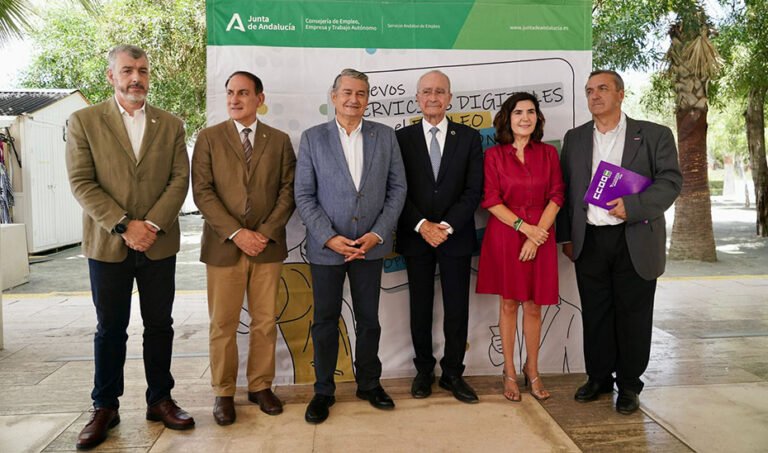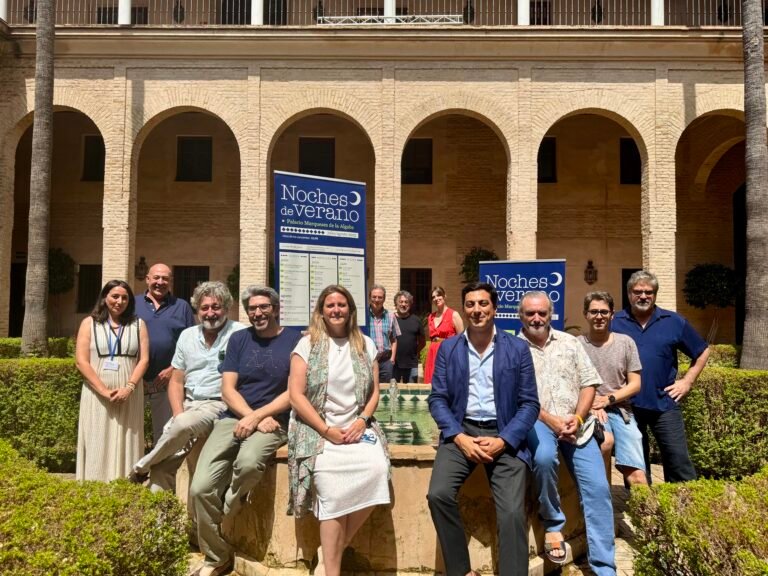
The Minister of Development, Territorial Articulation, and Housing, Rocío Díaz, has demanded a «deep reform» of state legislation from the government, including a new Land Law, to «facilitate urban development with legal certainty», a national law against illegal occupation that «allows for express evictions and strengthens victim protection», and the repeal of the current State Housing Law. Rocío Díaz appeared in Madrid at the General Commission of the Autonomous Communities of the Senate, where she emphasized the need to move away from labels and impositions and implement «realistic measures» that truly ensure access to housing. «Another housing model is possible, and Andalucía is a clear example of this,» stated the Minister of Development.
Díaz reviewed the seven years of the Spanish government’s housing policies, characterized by «erratic policies» that have led to «a historic drop» in rental supply and a «runaway price increase,» exacerbated in the last two years by the entry into force of the State Housing Law, a regulation that has proven ineffective. Additionally, Díaz once again demanded the urgent convening of the Housing Sector Conference because «the housing situation requires more work and less demagogy.» The Housing Sector Conference has not been held for seven months despite important issues to discuss, such as the distribution of funds from the State Plan.
The Minister defended the housing model being promoted in Andalucía, which shares similarities with the models other communities aim to implement. «Ensuring access to housing has always been a priority for this Andalusian government, moving away from socialist inaction,» she said, appealing to an Andalusian approach «without labels» that «aligns with the aspirations of the majority,» with measures that coincide with expert, sector, and institutional recommendations. Andalucía’s housing policy is based on increasing the supply of public rental housing, streamlining bureaucracy, and reducing tax burdens. «We have approved the Live Plan in Andalucía, which has helped us promote 13,000 VPOs, four times more than in the previous term, and also the LISTA, our land law, which streamlines urban processes and reduces administrative deadlines,» she explained.
She also mentioned the over 1,700 Andalusians who have obtained guarantees to buy their first home through the Guaranteed Housing Andalucía program, and the 250,000 Andalusians who have saved 460 million euros thanks to tax breaks associated with housing.
«Our housing policies provide certainty and confidence, giving citizens the peace of mind that having an affordable home in Andalucía is not a utopia, but an achievable right,» she asserted. In this regard, she highlighted that the Andalusian government has initiated the development of land for 19,000 homes through public-private collaboration and has granted over 300 million euros in aid to developers for the construction of 7,000 protected rental homes.
Andalusian Housing Law, after summer
Rocío Díaz informed the Upper House that the Andalusian government is working on «a housing law with its own stamp, which will reach Parliament after the summer and is aimed at solving problems, not creating them.» «It will be a structural and profound reform to increase supply and lower prices so that the youth and families of our land have easier access to housing,» she explained.
Some of the measures have already been advanced with the approval in February of a decree-law that aims for the construction of 20,000 protected homes in five years.
To achieve this, measures have been adopted to increase land availability, including the possibility of allocating tourist or office plots to protected housing, or allowing VPOs on private endowment plots for rent. Additionally, a 20% increase in density and building capacity is allowed on free housing plots if they are intended for official protection and promotions are added to the Project Acceleration Unit, reducing processing times by half. Finally, the Ministry of Development is working on creating a land bank for protected housing to make it available to developers.
Rocío Díaz also highlighted that the Andalusian government is addressing the increase in squatting within its competencies. Thus, the Andalusian System of Information and Advice on Eviction and Fight against Illegal Occupation was created because «occupation and lack of occupancy are present, even if denied.» «Our model seeks to restore the balance between owners and tenants by providing legal certainty,» the Minister of Development indicated because, as she stated, housing requires ambitious, responsible, and consensus-based policies, and Andalucía will continue to work, propose, and collaborate, but also demand.






